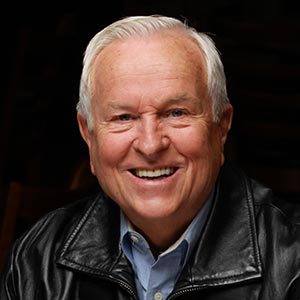Mi nombre es Mattew. Soy orador y autor del Ministerio Josh McDowell. Después de ver este video, no dudes en dejar un comentario aquí o a través de mis canales sociales, que se enumeran a continuación. Me encantaría saber de ti y ser una pequeña parte en tu lucha con estas preguntas importantes acerca de Jesús. ¡También te invito a suscribirte a mi canal!
Pagan Influences? | Are the Gospels Reliable?
As we continue in our series about the historical reliability of the Gospels, we have to ask whether the writers were influenced by pagan myths of dying and rising gods. The argument goes that the “myth” of Jesus is just a continuation of other myths.
Is Jesus really just a copy of other pagan gods? Since the mid-1990s, this argument has been almost completely rejected by Christian and non-Christian scholars of the New Testament, yet it’s still popular on the internet and secular media.
Just as one example, the movie Religulous puts it this way:
Written in 1280 B.C., the Egyptian Book of the Dead describes a god, Horus. Horus is the son of the god Osiris, born to a virgin mother. He was baptized in a river by Anup the Baptizer who was later beheaded. Like Jesus, Horus was tempted while alone in the desert, he healed the sick, the blind, cast out demons, and walked on water. He raised Asar from the dead. “Asar” translates to “Lazarus.” Oh, and like Jesus, he had 12 disciples. Horus also was crucified. Three days later two women announced that Horus, “the savior of humanity,” had been resurrected.
Despite the apparent similarities between Jesus and previous gods of pagan mythology, the theory that Jesus was copied from pagan mythology is problematic for many reasons. Let me show you eight solid reasons:
Pagan Copy or Original?
First: If you stop and fact-check the details of these pagan gods, you’ll find that most of them are completely made up, or so violently distorted to look like Jesus that they don’t offer compelling evidence.
Second: A man claiming to be a savior, performing miracles, healing people, and amassing followers is not an unusual story. Even dying and rising gods are not surprising in history. People of the ancient past were deeply interested in cycles of life and death, likely because of their annual crop cycle, where plants would grow, die, and grow back again.
Likewise, their gods would die and resurrect in a similar fashion, repeating the process every year.
Third: The fact that we see parallels to Jesus in other gods might be because the real God of this universe placed in every human heart the subconscious longing for Jesus. This longing inevitably inspired imaginative stories of ancient gods, but it happened for real in the life of Jesus.
Fourth: Comparisons to other gods/religions often ignore what is profoundly unique to the Christian message.
There’s no emphasis on doctrine. No emphasis on grace or forgiveness. The deaths of these gods was neither sacrificial nor voluntary. And there was no public declaration of a real bodily resurrection. Osiris, though “raised” by Isis, did not return in a resurrected body, but became king of the underworld. Though other ancient religions talk about salvation, they offer nothing like the Christian view of salvation.
Fifth: The argument that Jesus is a copy from previous gods also suffers from the “Genetic Fallacy” — that one event has been influenced by an earlier event. For example, can one say that the moon landing in 1969 was fake, simply because Star Trek came out first, in 1966?
Sixth: The religious Jews were not syncretistic. In other words, they did not blend other religions with their own. They were a set-apart people.
Seventh: Many of the details about pagan gods come from writings after the time of Jesus, even if the gods originated before Jesus.
What this means is that the life of Jesus may have influenced the teachings of Horus, Osiris, or other pagan gods, not the other way around.
Eighth: As I shared in a previous video in this series, the Gospels are grounded in historical teachings. The life of Jesus has been historically documented by Christians and non-Christians, who saw Jesus as a real person who lived, taught, and died on a cross.
In the next video, let’s look at a very important question: Were the authors of the four gospels telling the truth, or were they self-serving liars? I’ll see you then!
CONÉCTATE CON MATTHEW
Josh McDowell Ministry:
Página de Matthew en el ministerio de Josh McDowell
Social Links:
Facebook
Twitter
YouTube
Instagram














